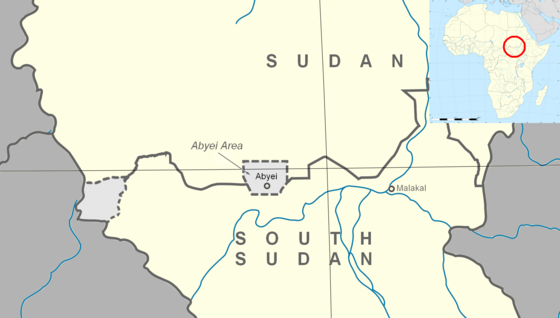The Abyei Dinka Coordination Committee announced that unarmed civilians in Sudan’s Abyei region have been subjected to a series of repeated attacks by Rapid Support Forces (RSF) militias in recent days, resulting in several deaths among the local population.
In a statement released today, the committee accused the United Nations Interim Security Force for Abyei (UNISFA)-the joint African peacekeeping mission mandated to protect the area-of collusion with the militias, holding it responsible for the deterioration of security and its failure to protect civilians.
The committee called upon both regional and international communities to take urgent action to condemn these grave crimes, demanding an end to the presence of the South Sudanese administrative authority in the area. It also rejected the existence of traditional administrations affiliated with RSF militias in Abyei, which is supposed to be a demilitarized zone.
Furthermore, the statement-signed by committee chairman John Zakaria Atem-urged the Sudanese government to withdraw and revoke the mandate authorizing the deployment of UNISFA forces in the region, citing what it described as a lack of neutrality and the mission’s failure to fulfill its duties.
In a related context, United Nations Secretary-General António Guterres revealed an increased deployment of South Sudanese security forces and RSF elements in Abyei, in violation of the 2011 agreement on interim administrative and security arrangements signed between Sudan and the Sudan People’s Liberation Movement. Guterres’s report to the Security Council indicated that more than 600 soldiers and police officers from South Sudan are stationed in southern Abyei-a notable increase compared to previous periods-alongside the establishment of checkpoints and the occupation of civilian buildings, including schools and health facilities, which has negatively impacted civilians’ rights to education, livelihoods, and healthcare.
The report noted that the presence of these forces impedes the work of the interim security force and restricts its movement, especially with the creation of new checkpoints that impose additional constraints on joint border monitoring patrols. The continued flow of small arms into northern Abyei was also highlighted, along with reports of RSF elements present in some local markets.
On February 28, RSF militias launched an attack on a UNISFA logistical convoy in the Nyama area of West Kordofan State, kidnapping four peacekeepers and eight drivers, and seizing UN equipment. The peacekeepers were later released, but several trucks and equipment remain in RSF custody.
The United Nations Security Council condemned these attacks, describing assaults on peacekeeping forces as a serious violation that could amount to war crimes, and demanded that those responsible be held accountable and that the seized equipment be returned immediately.
Politically, the UN report pointed to ongoing deadlock in the political process regarding Abyei’s future amid the Sudanese conflict and internal challenges in South Sudan, with no progress on resolving the region’s final status or border issues. No agreement has been reached on who is eligible to participate in a referendum on Abyei’s fate, as the Ngok Dinka community rejects the participation of the nomadic Misseriya. In 2013, the Ngok Dinka organized a unilateral referendum affirming the region’s affiliation with South Sudan, which Khartoum refused to recognize.
The report confirmed that meetings of the joint political and security mechanisms between Sudan and South Sudan have been suspended since the outbreak of conflict in Sudan in April 2023, despite Khartoum’s declared readiness to resume such meetings and the UN’s call for the South Sudanese government to engage in the political process to reach a lasting settlement for the Abyei crisis.


